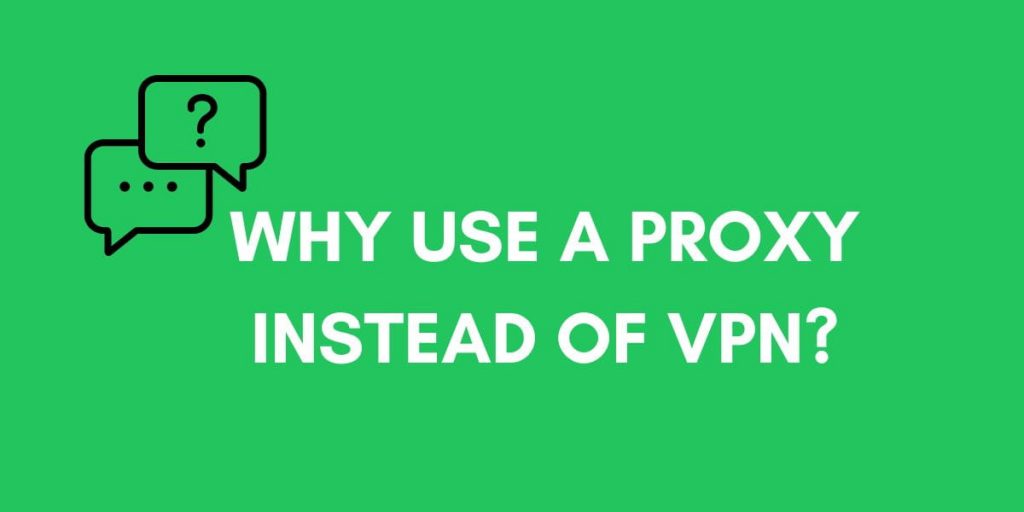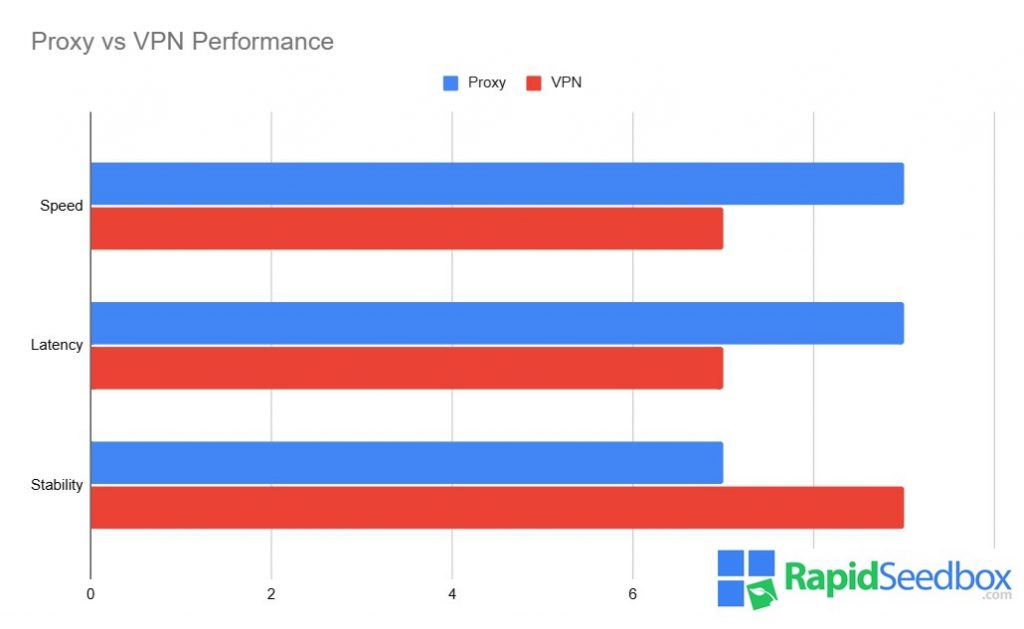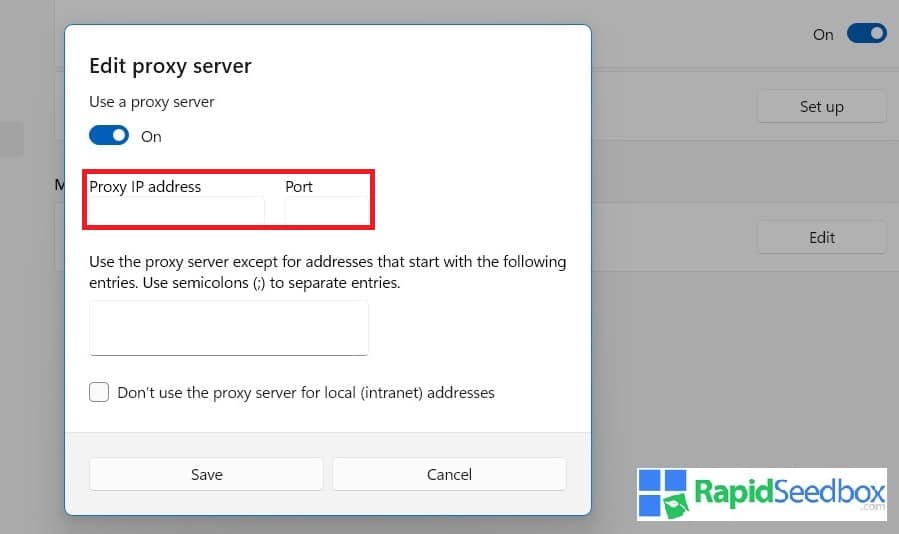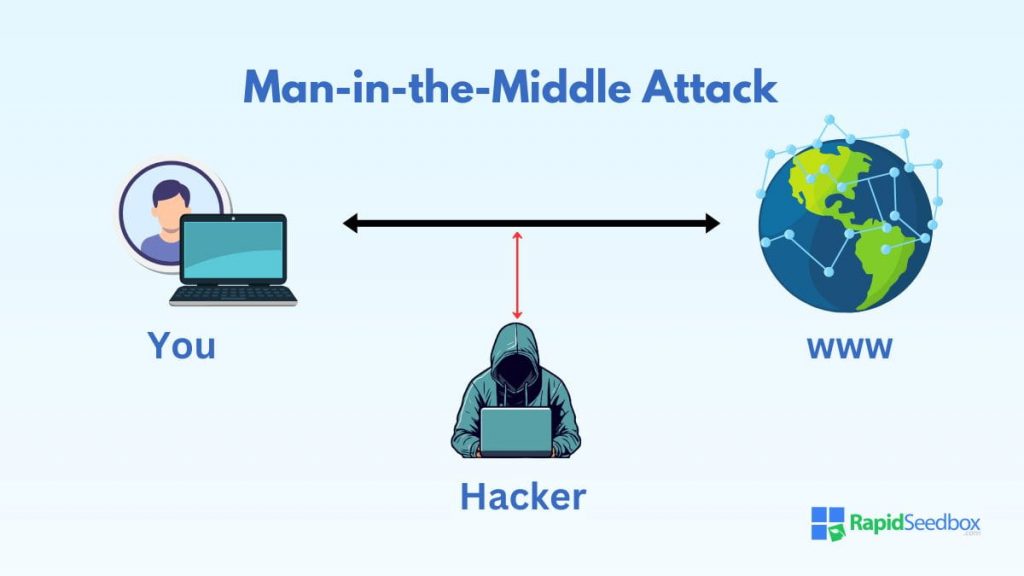One question that I’m often asked is, “Why Use a Proxy Instead of VPN?” Although these tools are similar, specific differences make them better at different things. For example, proxies can offer better speeds, while VPNs are more secure.
To help you choose the best options for your needs, this article explores several compelling reasons why you might choose a proxy over a VPN.

Table of Contents
- Why Use a Proxy Instead of VPN?
- Proxy Servers Are Often Faster
- VPNs Are Generally More Expensive
- You Don’t Need a Dedicated Proxy App
- Proxies Handle Large Volumes of Requests Well
- How to Choose Between a Proxy and VPN
- Frequently Asked Questions
- Final Thoughts
1. Why Use a Proxy Instead of VPN?
One of the most common reasons to use a proxy instead of VPN is the potential for faster speeds. The lack of data encryption on most proxy servers means less processing overhead, which allows devices with less processing power to perform better.
Confusion isn’t uncommon since proxies work similarly to VPNs. In both cases, your data is routed through a third-party server. However, proxies are generally more affordable and do not require client applications.
The tradeoff, however, is that proxies offer less security and fewer features.
2. Proxy Servers Are Often Faster
Proxy servers generally offer faster connection speeds than VPNs because most do not encrypt traffic. This lack of encryption makes proxies ideal for tasks that require high speed, such as media streaming and casual web browsing.
Proxies also typically have lower latency (the delay between a user’s action and the server’s response), essential for some activities, such as online gaming and video conferencing.
In contrast, VPNs are more secure but may offer slower speeds due to the encryption process. The extra data processing layer can slow things down, especially for users on less powerful devices. Remember that encryption happens on your device, not the VPN server.
Note: Several factors contribute to latency. These include physical distance to the server, network congestion, routing paths, and data processing time.
Tired of slow browsing speeds?
Switch to RapidSeedbox proxy servers for lightning-fast performance and seamless browsing. With our proxies, you can easily bypass geo-restrictions and access content from anywhere worldwide.
Supercharge Your Internet with RapidSeedbox Proxy Today!
3. VPNs Are Generally More Expensive
Another compelling reason to opt for a proxy instead of a VPN is cost-effectiveness. VPN services often have subscription fees that can add up over time, particularly if you opt for premium features or multi-device support.
In contrast, many proxy services offer a freemium model. You can test them for free and sign up for a plan if you need more bandwidth or features. Even the paid options are generally more affordable than VPN subscriptions.
4. You Don’t Need a Dedicated Proxy App
Proxies are typically more lightweight and easier to use than VPNs. Setting up a proxy often involves simply configuring the network settings on your device or browser, a straightforward process requiring minimal technical expertise.
The simplicity of proxy setup makes them accessible to a broader range of users, including those who may not be tech-savvy. For instance, most web browsers support proxy settings natively, allowing users to easily switch on proxy connections without needing additional software.
Most VPNs offer various deployment options, such as apps, native configuration, or browser extensions. However, you can typically only experience all the VPN features using their specific application.
5. Proxies Are Good at Specific Tasks
Proxies are particularly effective at managing large volumes of requests, which makes them ideal for professional or business use cases such as web scraping and data mining. Handling multiple simultaneous connections is crucial when dealing with these types of activities.
With a proxy server, you can distribute these requests across various IP addresses, reducing the risk of being blocked or throttled by the target server.
For instance, web scraping often involves making numerous requests to a website in a short period. Using a proxy, you can assign different IP addresses to each request, mimicking the behavior of multiple users and minimizing the likelihood of detection.
6. How to Choose Between a Proxy and VPN
Most of us (myself included) prioritize cost when choosing the tools we want to use. That may be a slight mistake when it comes to proxies and VPNs. I highly recommend considering your specific needs instead.
When deciding between a proxy and a VPN, consider the following:
- Security Needs: VPNs offer encryption; proxies do not.
- Performance: Proxies are generally faster due to the lack of encryption.
- Use Case: Proxies are good for streaming and bypassing geo-restrictions; VPNs are better for secure browsing and sensitive transactions.
- Setup and Ease of Use: Proxies require simple configuration, whereas VPNs may need software installation.
- Compatibility: Proxies are highly compatible with various devices and applications.
As a rule of thumb, I always recommend VPNs over proxy servers unless you have specific needs like web scraping or data collection. The main reason is the enhanced security that most VPN services offer compared to proxy servers.
7. Frequently Asked Questions
The primary advantage of using a proxy over a VPN is speed. Proxies generally offer faster connection speeds because they do not encrypt traffic, which reduces latency and allows for quicker data transmission.
Yes, proxies are often more cost-effective than VPNs. However, while you might find some free proxy services, I recommend sticking to premium options. Free proxies can be risky to use as they might sell your data.
You should use a proxy instead of a VPN when you need faster speeds, lower costs, and simplicity for tasks like bypassing geo-restrictions, casual browsing, and handling multiple connections, such as in web scraping or managing numerous social media accounts.
Proxies are highly compatible with various devices and applications, including web browsers, gaming consoles, and software. This versatility makes them a practical choice for users with diverse needs and different types of devices.
Proxies are effective at bypassing geo-restrictions, allowing users to access content that may be blocked in their region. However, VPNs are generally more reliable at this, while proxies provide faster access due to their lack of encryption.
8. Final Thoughts
Understanding the differences between a proxy and a VPN will help you make the right choice. Whether you prioritize performance, budget, or security, these tools have their respective strengths. The essential factor is to take into account your specific needs.
A VPN is almost always a better choice for privacy and security. However, proxy servers play a vital role for those in several business verticals or who simply need a quick fix for temporary geo-unblocking.
If you still aren’t sure which to choose, err on the side of caution and opt for a VPN instead of a proxy server.
Worried about your online security and privacy?
RapidSeedbox VPN provides comprehensive encryption to safeguard your internet traffic and protect sensitive information from prying eyes. With our VPN, you can securely access data, conduct financial transactions, and browse the web with peace of mind.



0Comments